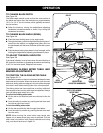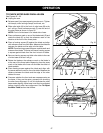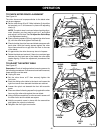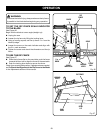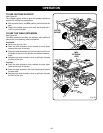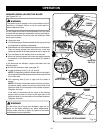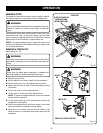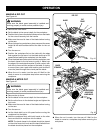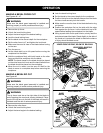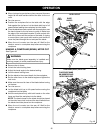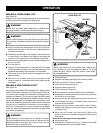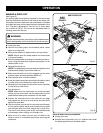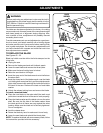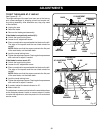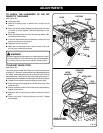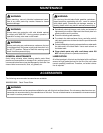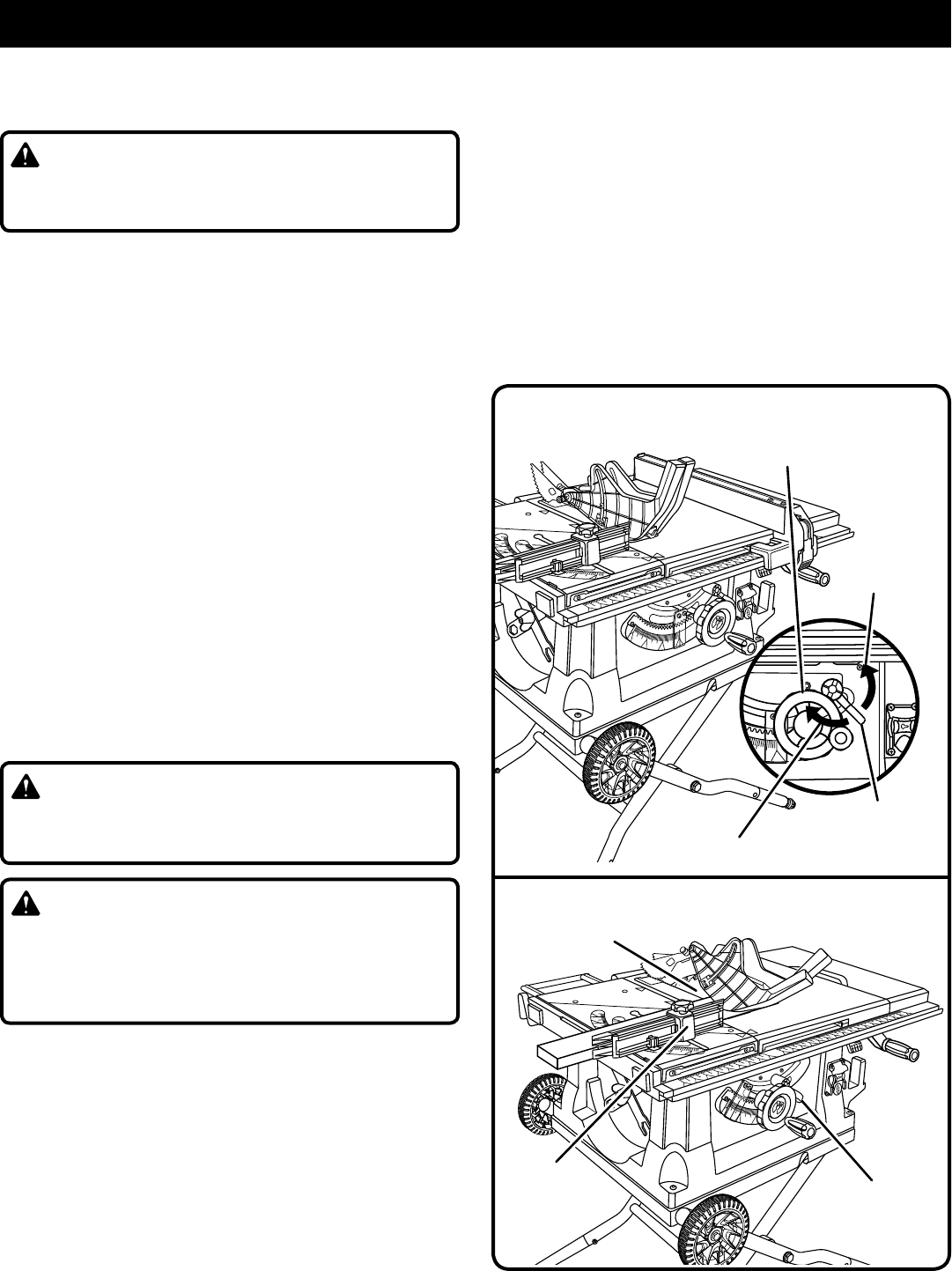
34
OPERATION
MAKING A BEVEL CROSS CUT
See Figures 46 - 47.
WARNING:
Make sure the blade guard assembly is installed and
working properly to avoid possible serious injury.
Remove the rip fence.
Unlock the bevel locking lever.
Adjust the bevel angle to the desired setting.
Lock the bevel locking lever.
Set the blade to the correct depth for the workpiece.
Set the miter fence to 0° and tighten the lock knob.
Make sure the wood is clear of the blade before turning
on the saw.
Turn the saw on.
Let the blade build up to full speed before moving the
workpiece into the blade.
Hold the workpiece firmly with both hands on the miter
fence and feed the workpiece into the blade.
NOTE: The hand closest to the blade should be placed
on the miter fence lock knob and the hand farthest from
the blade should be placed on the workpiece.
When the cut is made, turn the saw off. Wait for the
blade to come to a complete stop before removing the
workpiece.
MAKING A BEVEL RIP CUT
See Figure 48.
WARNING:
Make sure the blade guard assembly is installed and
working properly to avoid serious personal injury.
WARNING:
The rip fence must be on the right side of the blade to
avoid trapping the wood and causing kickback. Place-
ment of the rip fence to the left of the blade will result in
kickback and the risk of serious personal injury.
Remove the miter fence.
Unlock the bevel locking lever.
Adjust the bevel angle to the desired setting.
Fig. 46
VIEWED FROM THE FRONT, BELOW THE TABLE SAW
BEVEL
LOCKING LEVER
TO LOOSEN
TO
TIGHTEN
HEIGHT/BEVEL ADJUSTING
HANDWHEEL
Fig. 47
BEVEL CROSS CUT
BLADE
ANGLED
MITER
FENCE
STRAIGHT
BEVEL LOCKING
LEVER
Lock the bevel locking lever.
Set the blade to the correct depth for the workpiece.
Position the rip fence the desired distance from the blade
for the cut and securely lock the handle.
Make sure the wood is clear of the blade before turning
on the saw.
Position the workpiece flat on the table with the edge
flush against the rip fence. Let the blade build up to full
speed before feeding the workpiece into the blade.
Using a push stick and/or push blocks, slowly feed the
workpiece toward the blade. Stand slightly to the side of
the wood as it contacts the blade to reduce the chance
of injury should kickback occur.



